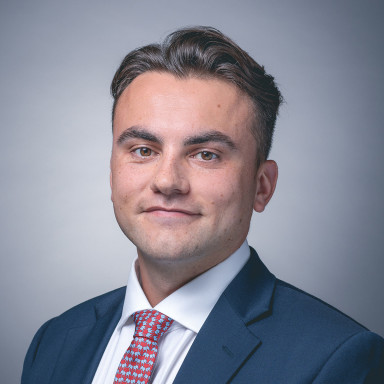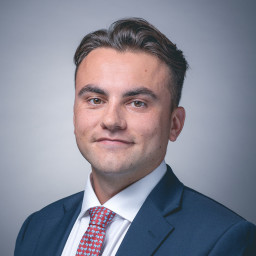Pacific Horizon invests in public and private Asian companies with strong growth potential
Roderick Snell has plenty of experience investing in Asia and has built a strong track record
The managers have been reducing number of investments in the trust over the past year
How it fits in a portfolio
The Pacific Horizon Investment Trust aims to deliver long-term capital growth by investing in what the managers believe to be the fastest growing companies in Asia (excluding Japan). The trust has large allocations in countries such as China, India and Korea but also invests in off-benchmark regions such as Vietnam.
The trust could be a way to diversify a global investment portfolio focused on growth or, due to its growth investment style, it could sit alongside other Asian trusts that use a more value-focused approach.
Manager
Roderick Snell has been lead manager of this trust since July 2021 and has served as deputy since 2013. He joined Baillie Gifford as a graduate in 2006 and spent time with the UK and European equity teams before joining the Emerging Markets team in 2008. Snell is also responsible for managing several other funds and trusts with significant overlap in terms of process, team, and the underlying investments.
Ben Durrant was appointed deputy manager in January 2023 but has co-managed funds with Snell since 2021. He joined Baillie Gifford in 2017 and has experience across the UK, global smaller and private companies’ teams. Unlike most fund managers at the firm, Durrant didn’t join as a graduate and previously worked at RBS across a number of divisions.
Fund managers at Baillie Gifford work as part of close-knit teams, so they receive input, support and knowledge from a group of experienced individuals. The managers can also draw upon the vast resources at Baillie Gifford to help with additional research, challenge and analysis.
Process
The managers invest in companies with high growth potential that they believe could be capable of delivering exceptional returns over the long run. They think that companies with sustainable, long-term growth prospects are often underappreciated by investors that take a shorter-term view. Instead, they are prepared to be patient, and wait for a company’s full growth potential to be reflected in a hopefully rising share price, even if that takes time.
The managers look for underappreciated growth in three forms:
Duration – these are world-class companies with a competitive advantage and great management. They are held for a long time because their growth is expected to endure.
Pace – these are rapidly growing companies that most other investors think will grow earnings at a slower pace.
Surprise – these are companies that may be out of favour or are growing earnings slowly, which later reach an ‘inflection point’ and perform strongly. They aim to invest in these businesses before other investors get excited and push up their share prices.
This whittles their universe down to a final portfolio of between 40-120 companies. Between 2019- 2021, the managers took advantage of this flexibility to invest in a larger number of companies. However, over the past few years they have been reducing the number of holdings and to only focus on their highest conviction ideas.
Their ‘bottom-up’ approach means this trust can look quite different to its benchmark. India and China are a significant focus for the team alongside other large investments in Korea and Taiwan. The managers also invest in countries not in the benchmark such as Vietnam and Kazakhstan.
The managers are also not afraid to make significant changes when they see fit. For example, the managers have reduced their investments in India from 35% in January to 23.2% at the end of June which is in-line with their weighting the previous year. Similarly, they’ve significantly increased their investment in TSMC from a 1.3% position in January to 7.2% at the end of June, now making it one of their largest investments.
Other notable new investments over this period included the South Korean semiconductor manufacturer SK Hynix, the Chinese e-commerce business PDD Holdings and coffee company, Lukin Coffee. They also purchased two new Vietnamese companies: FPT, an IT service provider and Mobile World Investment, a grocery retailer.
The trust can invest in companies of all sizes, including higher-risk smaller companies. It also invests in some companies that are yet to be listed on a stock market. These are often younger companies with exciting growth potential but are less liquid (more difficult to quickly buy and sell) and riskier than larger firms. At the end of the June, 7.3% of the trust was invested across five private companies – the limit is 15%.
While the trust doesn’t currently use gearing (borrowing to invest), it has the ability to do so and increases risk when used.
Culture
Baillie Gifford is an independent private partnership founded in 1908. It's owned by partners who work full time at the firm – including Roderick Snell. This ownership structure means senior managers have a vested interest in the company, and its funds, performing well. We think this has helped cultivate a culture with a long-term focus, where investors' interests are at the centre of decision making. We also like that fund managers are incentivised in a way that aligns their interests with those of long-term investors and should retain talented managers.
ESG Integration
All of Baillie Gifford’s funds are run with a long-term investment horizon in mind – they see themselves as long-term owners of a business, not short-term renters. So, assessing whether society will support, or at the very least, tolerate, the business model over the long-term, and whether management will act as good stewards of shareholders’ capital is an important part of the investment process.
Dedicated ESG analysts sit with and report into their respective investment teams, and the firm’s ESG efforts are supported by a dedicated Climate team, an ESG Services team (responsible for voting operations and ESG data) and an ESG Client team (responsible for ESG-related client communications). Individual investment teams are responsible for voting and engagement for the companies they invest in. Investment in controversial weapons is prohibited across the firm.
The firm reports all its voting decisions and provides rationale in situations where it voted against management or abstained, in a detailed quarterly voting report. There is also a quarterly engagement report which details the companies engaged with, and the topic discussed, and further engagement case studies are available on the website. All this information is brought together in the firm’s annual Stewardship Activities report.
While Baillie Gifford have made good progress with respect to ESG, this trust is not managed to a responsible mandate.
Cost
The trust's most recently disclosed ongoing annual charge is 0.72%. Investors should refer to the latest annual report and accounts, and Key Investor Information for details of the risks and charging structure.
If held in a SIPP or ISA the HL account charge of 0.45% (capped at £200 p.a. for a SIPP and £45 for an ISA) per annum also applies. Our account charge doesn't apply if held in a Fund and Share Account or a Junior ISA. As investment trusts trade like shares, both a buy and sell instruction will be subject to our share dealing charges within any HL account except online deals in a Junior ISA.
Performance
The trust has delivered strong returns since Snell become deputy manager in September 2013. Over this period, the trust’s net asset value (NAV) increased by 290.62%*, versus 108.72% for the MSCI AC Asia Excluding Japan Index. The share price has also risen by 317.06%.
Even though the trust has performed well over the long term, it has lagged the benchmark since Snell became lead manager in 2021. We think this is largely due to his style of investing being out of favour over this period as opposed to making lots of stock selection mistakes.
The manager’s long-term approach and growth style bias means performance can be volatile and look very different to the benchmark. As always, past performance is not a guide to future returns.
Over the past 12 months (to end of July 2024) the trust’s NAV rose by 5.35% versus 7.24% for the benchmark. It’s share price also rose by 5.10%. The managers overweight to India during this period helped performance as did their stock picking, especially within the real estate state. Holdings such as Prestige Estates Projects, Indiabulls Real Estate and Phoenix Mills were among their best performing investments.
Despite the company’s share price increasing significantly, having less invested in TSMC for most of this period was a headwind for relative performance. Other notable detractors included Li-Ning, the Chinese sportswear supplier and Ping An Insurance, the Chinese insurance company.
Please note the share price of investment trusts can trade at a premium or discount to their net asset value (NAV). At the time of writing the trust trades at a discount of 9.20%. This compares to an average discount of 10.06% over the last 12 months.
Annual Percentage Growth
July 19 – July 20 | July 20 – July 21 | July 21 – July 22 | July 22 – July 23 | July 23 – July 24 | |
|---|---|---|---|---|---|
Pacific Horizon Investment Trust | 57.50% | 59.19% | -19.33% | -8.91% | 5.10% |
MSCI AC Asia Excluding Japan | 1.67% | 13.85% | -6.20% | 0.81% | 7.24% |


